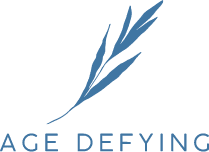Key Points
-
Brain health is of particular concern to women over 50 as they age.
-
Cognitive decline as you age isn't inevitable; there are several steps you can take to slow the effects of aging on brain health, including supplementation.
-
This article reviews seven supplements that promote brain health and healthy cognitive function in women over 50.
Getting older is something everyone goes through. Some people may have more fun as they age, but virtually no one enjoys the thought of getting older. People typically associate aging with some not-so-pleasant side effects, including frailty and disease.
Aging doesn't have to be that way. You can take active steps to make the process easier on the body and mind.
Maintaining a Sharp Mind As You Age
As women age, maintaining optimal brain health becomes increasingly important. Cognitive decline and memory loss are common concerns for women over 50. According to the National Institute on Aging, "It's normal to forget things once in a while as we age."
While a healthy lifestyle and mental stimulation boost cognitive function and slow its decline as you age, supplements can also support brain function. This article explores seven brain-boosting supplements that have shown potential benefits for women over 50.
B Vitamins
B vitamins are essential for brain health as they play a vital role in producing and regulating neurotransmitters, which are crucial for cognitive function.
The following B vitamins are especially beneficial for brain health:
-
Vitamin B6 (pyridoxine)
-
Vitamin B9 (folate)
-
Vitamin B12 (cobalamin)
B vitamins contribute to the maintenance of cognitive skills, mental clarity, and overall brain function. They promote the production of neurotransmitters such as serotonin, dopamine, and norepinephrine, which are involved in mood regulation and memory formation. Additionally, B vitamins support the synthesis of DNA and RNA, which are crucial for proper brain cell function and repair.
Specific B Vitamins for Women Over 50
Vitamin B6 (pyridoxine) helps regulate homocysteine levels in the blood, which, when elevated, may increase the risk of cognitive decline. B9 (folate) is essential for brain development and function and is particularly beneficial for women over 50, as it may help prevent age-related cognitive decline. Vitamin B12 (cobalamin) supports nerve health and the production of myelin, which insulates and protects brain cells. Myelin deficiency is associated with memory loss and cognitive decline.
Dosage Recommendations and Potential Side Effects
The recommended daily dosage for vitamin B6 for women over 50 is 1.5 mg. Folate intake should be around 400 mcg, while vitamin B12 should be supplemented at 2.4 mcg. It's important to note that excessive intake of B vitamins may have adverse effects. Always consult a healthcare professional to determine the appropriate dosage and potential interactions with medications.
Curcumin
Curcumin, a compound found in turmeric, has gained attention for its potential brain-boosting effects. It has anti-inflammatory properties, which may protect against cognitive decline. Curcumin has been shown to cross the blood-brain barrier and accumulate in areas of the brain associated with memory and learning.
In addition to reducing inflammation, it promotes the production of brain-derived neurotrophic factor (BDNF), a protein that supports the growth and maintenance of brain cells and synapses.
Anti-Inflammatory Properties
Chronic inflammation in the brain has been linked to cognitive decline and neurodegenerative diseases. Curcumin's potent anti-inflammatory properties may help combat this inflammation and reduce the risk of age-related cognitive decline. By inhibiting the production of pro-inflammatory molecules, curcumin may protect against oxidative stress and improve memory and attention.
Precautions
The recommended dosage of curcumin varies depending on the product and concentration. However, a typical dosage range is 500-1,000 mg per day. Choose high-quality supplements with standardized curcumin content to ensure effectiveness. Women over 50, particularly those with gallbladder issues or taking blood-thinning medications, should consult a healthcare professional before starting a curcumin supplement.
Ginkgo Biloba
Ginkgo biloba, derived from the leaves of the ginkgo biloba tree, has been used for centuries for its potential cognitive benefits. It's believed to enhance memory and overall cognition. Ginkgo biloba has been used in traditional Chinese medicine for centuries to improve cognitive function and treat various ailments. Its popularity has grown globally as a natural supplement for brain health due to its potential benefits.
Ginkgo biloba may improve memory and cognitive function, especially in individuals with age-related cognitive decline. It's believed to support blood flow to the brain, enhance neurotransmitter activity, and provide antioxidant protection, all contributing to improved cognitive performance.
Key Considerations
When choosing ginkgo biloba supplements, select those made from standardized extracts to ensure consistent levels of active compounds. The recommended dosage ranges from 120-240 mg per day, taken in divided doses. As with any supplement, consult a healthcare professional, especially if you have a bleeding disorder or are on blood-thinning medications.
Omega-3 Fatty Acids
Omega-3 fatty acids are essential fats that are vital to brain health and function. They're primarily found in fatty fish such as salmon, mackerel, and sardines but can also be obtained through supplements.
Omega-3 fatty acids are crucial components of brain cell membranes, particularly docosahexaenoic acid (DHA) and eicosapentaenoic acid (EPA). They help maintain the flexibility and integrity of brain cells, which is essential for proper signaling and communication between neurons.
The high concentration of DHA in the brain suggests its crucial role in maintaining cognitive function. DHA supports memory, learning, and overall cognitive performance. On the other hand, EPA exhibits anti-inflammatory effects and may reduce oxidative stress in the brain, providing additional cognitive benefits.
Best Omega-3 Fatty Acids Sources
The best dietary sources of omega-3 fatty acids include fatty fish, flaxseeds, chia seeds, and walnuts. However, for individuals who may not consume enough through diet alone, omega-3 supplements can be beneficial. The American Heart Association recommends a daily intake of 1,000 mg of combined DHA and EPA for adults. When choosing supplements, look for those that provide sufficient amounts of these fatty acids and have been third-party tested for purity and quality.
Phosphatidylserine
Phosphatidylserine is a naturally occurring phospholipid found in high concentrations in the brain. It's involved in various brain functions, including memory, learning, and attention. Phosphatidylserine acts as a structural component of cell membranes in the brain. It facilitates cell communication, signal transmission, and the efficient functioning of neurotransmitters. It also promotes the production of acetylcholine, a neurotransmitter essential for memory formation and retrieval.
Phosphatidylserine supplementation may improve memory and cognitive function in older adults. It has shown potential in combating age-related memory decline and reducing the risk of cognitive impairment.
Potential Interactions or Side Effects
The recommended dosage of phosphatidylserine ranges from 100-300 mg per day. It's generally considered safe when taken orally. Consult with a healthcare professional before starting phosphatidylserine supplementation, especially if you're taking any medications that may interact with it, such as anticoagulants.
Resveratrol
Resveratrol is a natural compound in certain plants, such as grapes and berries. It has gained attention for its potential neuroprotective effects and ability to support healthy aging. Resveratrol is a polyphenol that acts as a defense mechanism in plants under stress. It's found in high concentrations in the skin of grapes, berries, and other plants.
Red wine is often cited as a source of resveratrol; however, the quantities are relatively small.
Potential Neuroprotective Effects
Resveratrol has shown promise in protecting the brain against oxidative stress and inflammation associated with age-related cognitive decline and neurodegenerative diseases. It may also promote the health and formation of new neurons, enhance blood flow to the brain, and support the clearance of amyloid-beta plaques, a hallmark of Alzheimer's disease.
The Austin-American Statesman reported that in early July 2023, the FDA approved lecanemab-irmb, which is sold under the brand name Leqembi. This first-of-its-class drug specifically targets amyloid-beta plaques in the brains of Alzheimer's patients. The build-up of amyloid plaques is a primary factor in the development and progression of the disease.
Recommended Dosage and Considerations
The ideal dosage of resveratrol is still subject to ongoing research, but the usual daily intake recommendation of 150-500 mg may provide potential cognitive benefits. It's important to note that while moderate red wine consumption contains small amounts of resveratrol, excessive alcohol intake harms brain health. Therefore, resveratrol supplements or other sources are recommended for consistent and controlled dosing.
Vitamin D
Vitamin D is necessary for bone health and plays a crucial role in overall brain function. It helps regulate mood, supports memory formation, and may reduce the risk of cognitive decline. Vitamin D receptors are present throughout the brain, emphasizing its importance in neurological function. It supports the production and release of neurotransmitters, including serotonin, dopamine, and glutamate, which influence mood, cognition, and memory.
Vitamin D deficiency has been associated with an increased risk of cognitive decline, neurodegenerative diseases, and mood disorders. Maintaining optimal vitamin D levels helps protect against these conditions and promotes healthy brain aging.
Supplementation Guidelines for Women Over 50
The recommended daily vitamin D intake for adults is 600-800 IU. It's recommended to have your vitamin D levels tested and consult a healthcare professional to determine the appropriate supplement dosage, as individual needs may vary based on factors such as sun exposure, age, and existing health conditions.
Don't Let Aging Go to Your Head
Keeping the brain healthy is vital for women over 50 to support cognitive function and overall well-being. While supplements can help brain health, they should be considered part of a comprehensive approach that includes a healthy lifestyle, mental stimulation, social activity, and regular exercise.
Before starting any new supplements, consult a healthcare professional to determine the most suitable options and dosages based on your needs and potential interactions with existing medications. If you're a woman over 50, you don't have to quietly accept memory loss or cognitive decline as you age. Take control of the aging process with supplementation.
For more tips on healthy aging, subscribe to Age Defying.



